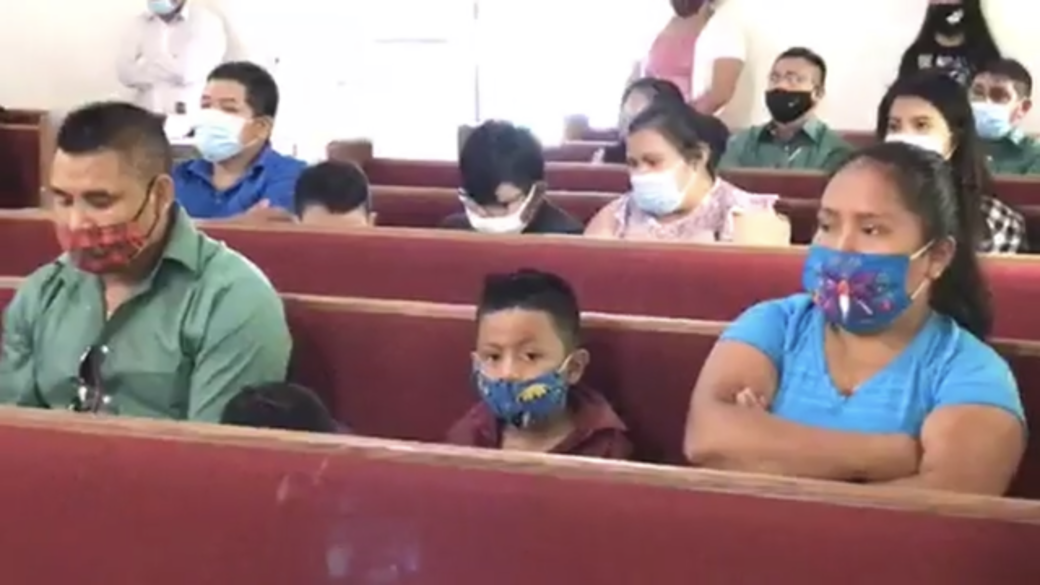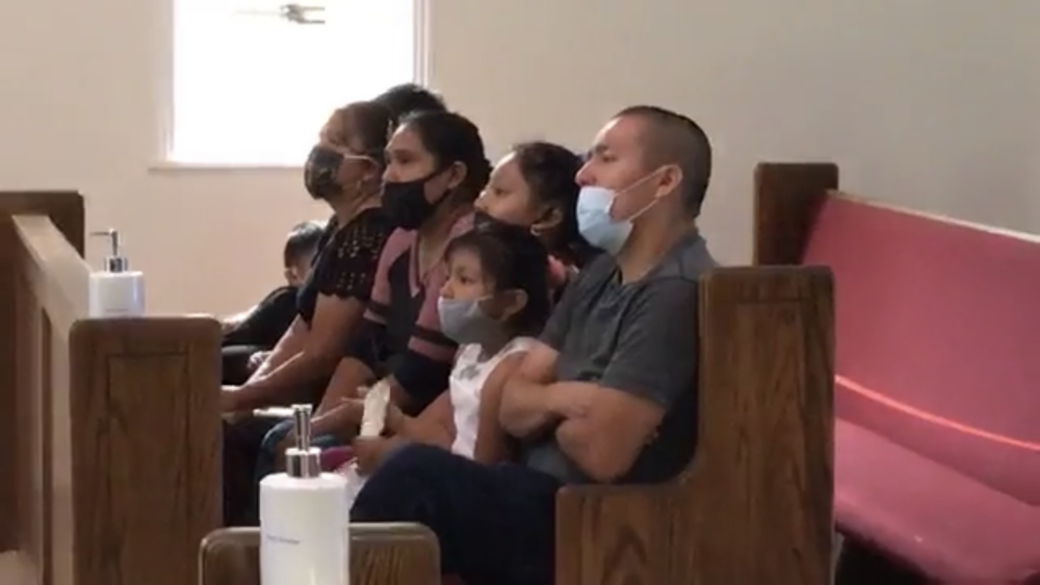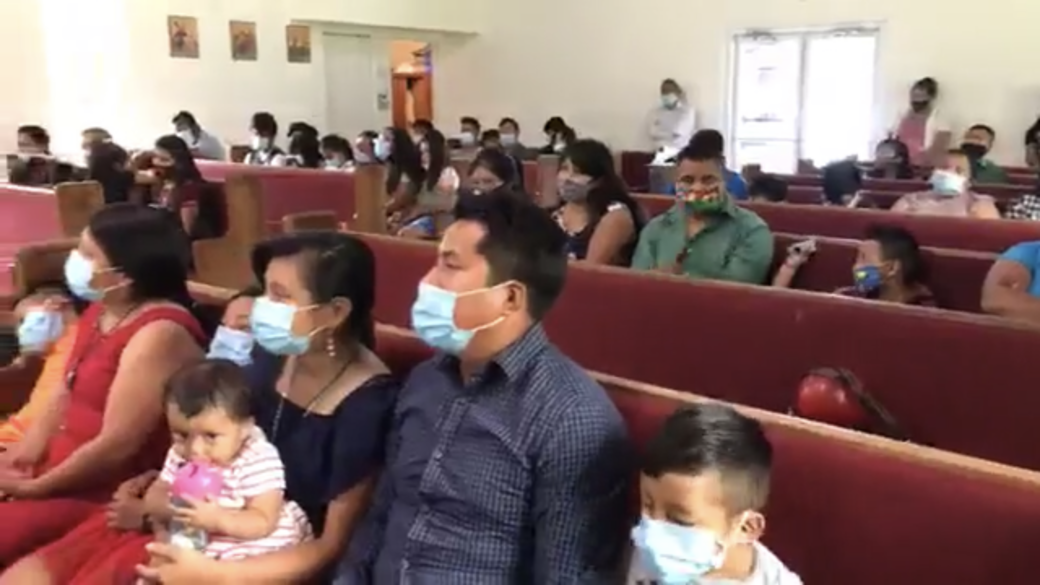By Berta Mexidor and Joanna Puddister King
JACKSON – On Aug. 7, 2019 at least four Catholic parishes were shaken after U.S. Immigration and Customs Enforcement agents raided chicken processing plants across the state, arresting 680 undocumented workers. The day left many children in fear and pain on their first day of school, as they were left with no place to go with their families taken from them.
As some were released from ICE custody to care for their children, a new reality set in. The loss of income, along with an unforeseeable future and questions on how their families may survive without loved ones in ICE custody.
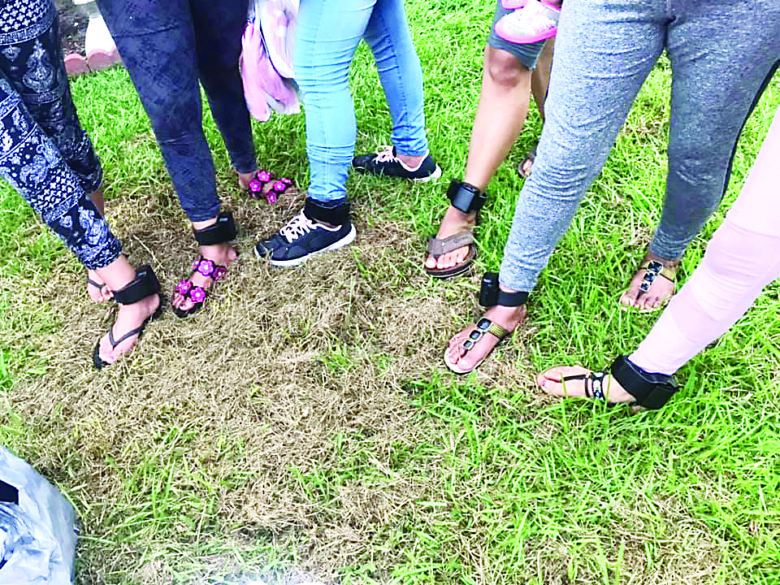
About seven months later, between court appearances, possible deportation, and legal incertitude, pain for these communities came again, now in the form of an illness affecting everyone without discrimination of legal status. But for the families of affected families in Canton, Forest, Morton, and Carthage, the fear of COVID-19 was less than the fear for immigration officials.
Hundreds have gotten sick, and friends and family members have died due to COVID-19. Many undocumented immigrants are avoiding tests and hospitals regardless of the authorities’ promises of not to check legal status during medical tests due to the immense fear the ICE raids caused.
The situation is not localized only to Mississippi, but around the country too. Several of the families affected by the raids migrated to other states due to fear of another raid. The church’s membership was reduced by this migration as well.
Right after the raids last August, the church became a humanitarian hub for food, goods and financial resources to pay rent and utilities. At that moment, the immigrants noted that God was sending several helping hands, even a Cardinal from Guatemala.
On Nov. 7, 2019, Rep. Bennie Thompson held a congressional hearing at Tougaloo College in Jackson. He was accompanied by two more representatives; as well as, state, community and religious leaders, including Father Odel Medina, ST of St. Anne Carthage, to question Homeland Security Investigations Special Agent Jere Miles about the mishandling of the massive ICE raid months earlier.
During the hearing, Father Medina took the opportunity to read a letter from a child in his parish, who was hurting and traumatized in the aftermath of the raids.
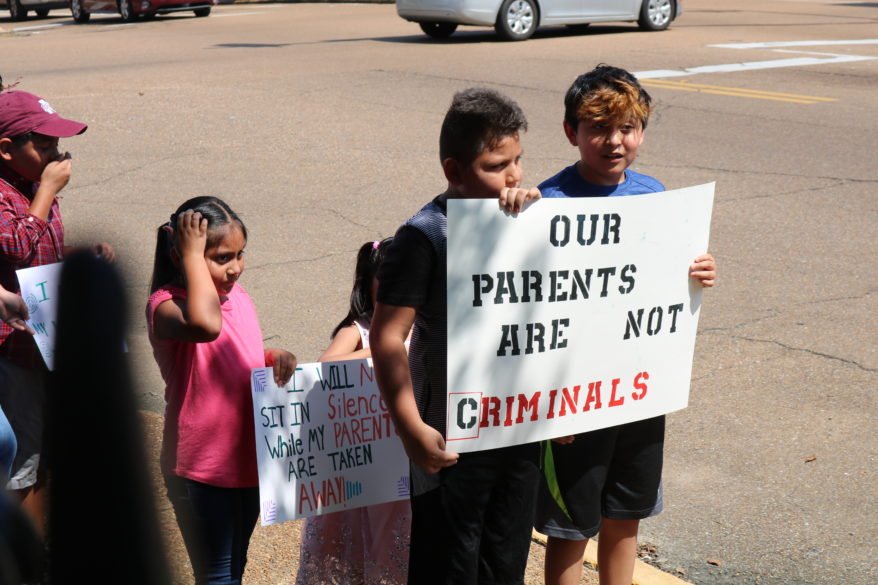
Shortly before Christmas, Cardinal Álvaro Ramazzini Imeri of Guatemala, visited the affected parish communities with a message that “God never abandons you.” He consoled families affected by the raid with words of the Gospel and accompanied them during three days of the advent season, participating in “Las Posadas” – a reenactment of Mary and Joseph’s attempt to find lodging before the birth of Jesus.
While in Mississippi, Cardinal Ramazzini spoke with media, advocating for a “migration policy with a human face” and spoke of the economic conditions that force many to leave their home country and asked for the elimination of the custom where immigrants are treated as criminals, without having a criminal record.
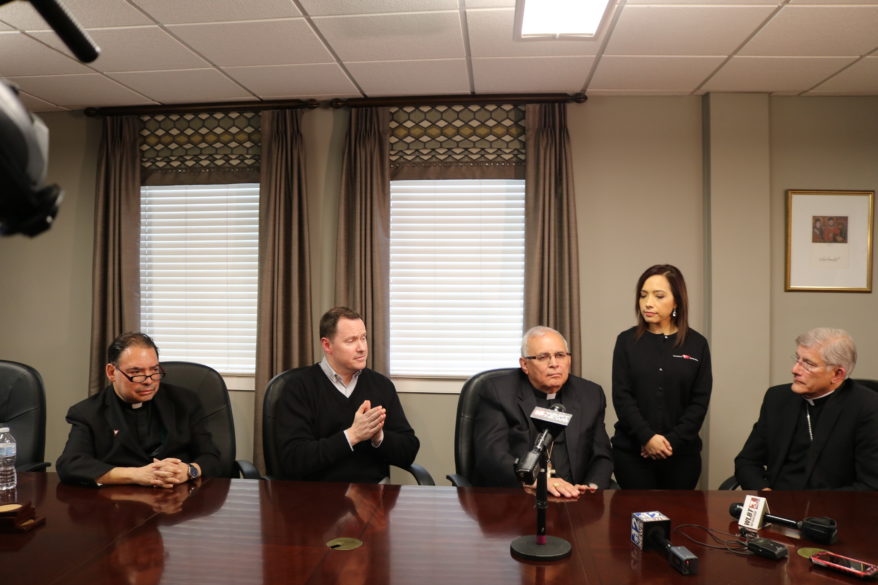
During the same visit, Catholic Extension, which sponsored Cardinal Ramazzini’s visit, announced their Holy Family Fund, a relief program that assists families in the United States who are financially dependent on a parent that has been detained or deported for immigration reasons. Through the fund, Catholic Extension has been instrumental in ensuring the flow of aid to support delivery of basic resources to the churches serving the humanitarian and spiritual needs of the families in Mississippi affected by the ICE raids.
The help from Catholic Extension, Catholic Charities and many within the Catholic community has helped affected families in the parishes of Canton, Carthage and Forest-Morton communities.
In Forest and Morton, close to 120 families were affected, and now 20 of those families have been affected by COVID-19. Father Roberto Mena, ST sacramental minister of St. Michael Forest says that ”the loss of jobs and an uncertain school year for the children” is a huge challenge right now for his community.
Blanca Peralta coordinates the activities of the Hispanic community, under the leadership of Father Mike O’Brien, pastor of Sacred Heart Canton. Both began offering aid even as the raids were still being conducted. Father Mike and Peralta, along with a network of volunteers including Patti Greene, Jerry Perez and John Scanlan, have been helping 120-150 affected families since the raids. They have been providing food, payments for rent and utilities, and pastoral care.
The team from Sacred Heart Canton, along with constituents from Grace Episcopal Church, were recently announced as nominees for the Lumen Christi award from Catholic Extension for their work after the ICE raids.
For Father Mike, the decision to close his church doors for a period of time after COVID-19 hit earlier this year was very painful. His main concern was how to continue the labor of helping those affected by the raids.
Peralta navigated the struggle due to the virus, but Sacred Heart never stopped helping. They continued assisting by phone, by mail and by accompanying immigrants to the hospital and court appointments. Additionally, every Wednesday since June, they have distributed 300 boxes of food, fruits and vegetables, provided by Partners of Mississippi.
She says that families deeply felt the closure of the church. “They understand perfectly why, but the church ground is the only place where they feel that they belong. In church they can meet, share, hug, be happy and enjoy a moment of protection from the Almighty Father,” Peralta said.
Since Aug. 9, Sacred Heart has opened two services for Mass in Spanish, with space for only 40 people. The challenge now is communicating the importance of social distancing and sanitary measures, as well as, calming the fears immigrants manifest in going to the hospital for tests, says Peralta.
Father Odel, of St. Anne Carthage, has also been an advocate for families affected by the raids. He has also been distributing humanitarian aid and coordinating volunteers from around the country to those affected by the raids in his community since last August. Additionally, he fought COVID-19 in April and has been sharing his story with migrants, so they will not be afraid to seek the help they need if they contract the virus. He says that in some instances, entire families have been infected with COVID-19 in his community.
In total, Father Odel says approximately 80 families at his parish were affected by the raids and now COVID-19. The challenge for the whole undocumented community is ”… to break the stereotype propagated by some political outlets, of not being hard working individuals. They get arrested while working, and during the pandemic, when most people were home, they were working,” said Father Odel. “The chicken plants are considered essential industries; therefore, immigrants were needed, regardless of legal status.”
Father Odel says the biggest challenge for his community now is “the consequences of family separation, now worsened by COVID’s restrictions.”
After a year, the undocumented population has mixed feelings of pain and faith. Due to their lack of documentation, they lost jobs and some their freedom last August. Now, due to COVID-19, many in chicken factories and agricultural harvesting are considered essential workers. Many hope that this situation can soften the laws toward immigrants looking for an honest way of living.
Still, the community has faith even after the trauma suffered one year ago lingers on.

